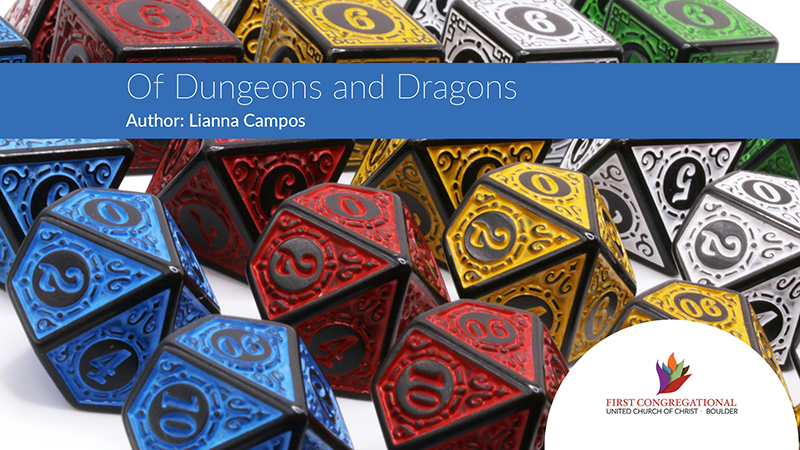You can listen to this week’s Devotional here
Author: Lianna Campos
This summer, our youth spent several of their youth groups playing Dungeons and Dragons. Masterfully led by Sam, the youth developed characters who snuck through forests, rescued goats, escaped from being trapped in a crystal orb, and thwarted the plans of an evil vampire queen. If you had peeked your head into the Faith Cave on one of those nights, you would have seen youth acting out combat and heard them pretending to cast spells, and would likely pull your head back from the utter chaos wondering what place that all has in youth group. Sure, they were clearly having fun, but youth group is about more than just good times and junk food.
I believe that youth group is meant to be a place of absolute safety and support as teens and tweens explore and practice being their God-blessed selves. Social skills are hard, and we’re still learning and navigating the ways in which the pandemic affected our children and youth’s development. To appeal to the youth’s interests and to help foster a place of safety, we played Dungeons and Dragons.
One of the ways to be in a place of safety is to incorporate imagination, which is the very foundation for D&D. While in-game stakes are high, practically you’re just sitting around a table playing pretend with your friends. Everyone creates a character and then sends them off on an adventure, working together to build the world in which they want their characters to live.
In doing so, in this practice of imagination, they learn to be heroes. They learn to be helpers. They learn to ask for help and to accept the help that is offered. They learn how to deal when things don’t go their way. They practice being optimists, fiercely fighting to rid the world of evil. They recognize their agency in creating a world in which they want to live.
I hope they continue to do so.
I wonder how we as adults can use our imaginations to practice such important skills. Dungeons and Dragons is a game for all ages, so there’s always that option. Engaging with works of fiction can strengthen the imagination. There’s room for imagination in our spiritual practices, too. St. Ignatius of Loyola was known for imagining himself into gospel stories, actually pretending he was a character in that world. We can incorporate our imaginations into prayer, pretending that a physical form of God is present. Some create art while others rewrite Psalms or parables to incorporate today’s realities.
With God, our imaginations can be used to learn more about the Divine and who they created us to be.
With God, even Dungeons and Dragons can be a vehicle for doing so.

